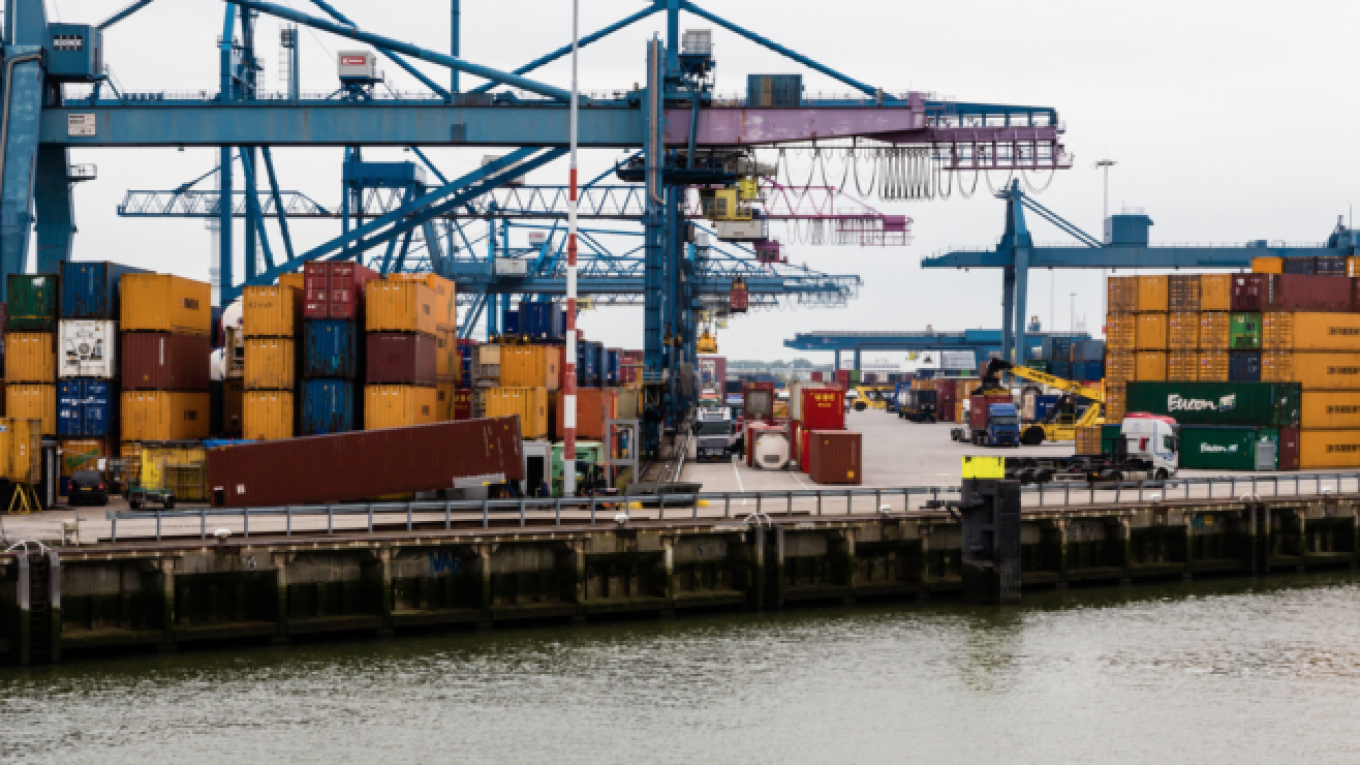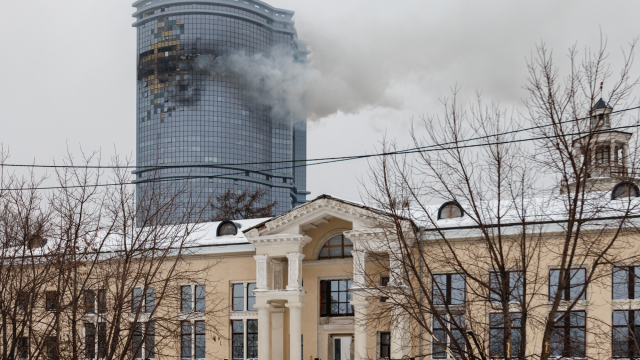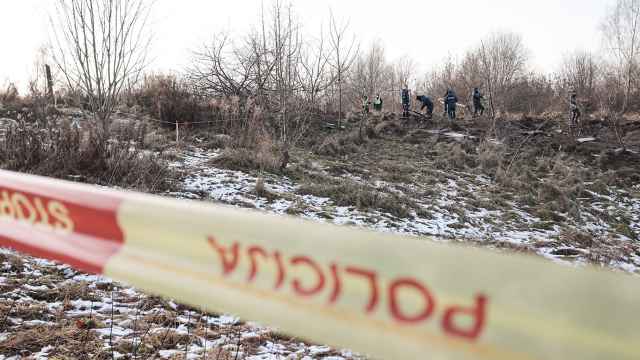BERLIN/FRANKFURT — The knock to confidence from harsher European sanctions on Russia could spoil the euro zone's budding economic recovery even if it shrugs off the fallout on trade.
Following months of hesitation, the European Union sealed a deal on Tuesday to impose the first broad economic sanctions on Russia — its third-biggest trading partner — following the downing of a Malaysian airliner over territory controlled by pro-Moscow rebels in eastern Ukraine.
The measures will shut state-owned Russian banks out of European capital markets and target the defense sector and sensitive technologies, including oil, but exclude the vital gas sector, on which Europe is heavily dependent.
The sanctions mark a fundamental change in how Europe deals with Russia, one which carries risks not just for Moscow but for Europe itself.
"The impact on trade is relatively small. The far bigger risk is a knock to overall economic confidence," said Gregor Eder, an economist with Allianz, one of the world's largest fund investors.
"A spiral of sanctions together with the loss of overall confidence could be enough to bring the already fragile economic recovery in Europe to a halt," Eder said.
Previously, EU leaders were reluctant to impose sweeping sanctions on Russia, and with good economic reason. Not only does Moscow supply about a third of the EU's gas needs, trade ties in other areas between Russia and Europe run deep.
German energy giant E.ON, for instance, has invested 6 billion euros ($8 billion) since 2007 in Russia while chemicals firm BASF has a joint venture with Gazprom.
In France, defense group Thales owns a stake in a company that sells warships to Moscow, while Franco-German aerospace group Airbus and its suppliers depend on Russia for titanium to make heavy-duty plane parts such as landing gears.
The trade ties help explain why German business confidence fell to its lowest level in nine months in July, with respondents blaming the Ukraine crisis.
The EU has already imposed narrow sanctions since Russia backed rebels fighting Kiev's forces in east Ukraine. A list of people, including allies of Russian President Vladimir Putin, are subject to asset freezes and travel bans.
These limited measures have already discouraged business — euro zone exports to Russia were down 13 percent between January and April and foreign investment in Russia has dropped sharply.
Still, exports from the euro zone to Russia account for less than 5 percent of the bloc's total and economists believe Europe could cope with lower Russia trade. But the blow to confidence and knock-on effect on investment could be more serious.
"The German and European economies are already experiencing negative effects from the conflict with Russia. The biggest risk to Europe, however, stems from the enormous uncertainty that the conflict has caused," said Marcel Fratzscher, head of Berlin-based DIW economic research institute.
"Companies do not know if they can still sell their products to Russia in three months' time or a year. Banks are uncertain whether loans will be paid back. It is unclear for energy users and consumers what will happen with oil and gas prices," Fratzscher said.
Tit-For-Tat?
The uncertainty comes at a bad time for the 18 countries in the euro zone, whose economy is already in the doldrums.
The currency area is expected to have eked out barely any economic growth in the second quarter of the year, with the Bundesbank forecasting that even the mighty German economy flatlined.
Policymakers' biggest hypothetical concern is about the potential for gas supplies to be interrupted, requiring countries to seek more expensive supplies from elsewhere — which could depress spending in other areas even further.
Given the financial cost to Russia of turning off the taps, industry experts say that may be unlikely. U.S. and EU sanctions have avoided targeting Russian gas export monopoly Gazprom. But there are other ways Russia could fight back, short of switching off the gas.
"Russia will retaliate," said David Gordon of Eurasia research group, predicting that Moscow could erect informal barriers such as stricter health and safety rules to make it harder for foreigners to do business in Russia.
Eder of Allianz fears worse. "How would Russia react if European banks were not allowed to grant credit to Russian companies?" he said.
"There could even be the threat of confiscation of productions sites in Russia from European companies," Eder said.
Any counterstrike from Moscow to sanctions would fall heaviest on European countries with the deepest trading ties.
The Netherlands, which bore roughly two thirds of the casualties when the Malaysia Airlines flight was downed over Ukraine, is among those that could lose most.
The Dutch economy, which shrank 1.4 percent in the first quarter of 2014, depends on its port of Rotterdam, which was the single largest destination for Russian exports last year, receiving shipments of oil that is then dispatched across the EU.
The Netherlands also needs to safeguard its own energy supply from countries including Russia after earthquakes forced it to cut output from one of its most important gas fields.
Other euro zone countries depend on Russia to buy particular goods and services, even if in most cases it is not a top overall export market. Italy exported 12.7 billion ($17 billion) euros to Russia last year, while France, at more than 10 billion euros ($13.4 billion), was not far behind. Austria, which has long had close energy and financial ties to Moscow, exported 4.6 billion euros ($6.2 billion).
The largest repercussions may be felt from potential restrictions on Russian banks' freedom to refinance themselves in Europe. This would hit Russia's two biggest banks, Sberbank and VTB Bank, whose Austrian arms were recently taken under the watch of the European Central Bank.
Any retaliation by Moscow could affect European banks active in Russia, such as Italy's UniCredit, Austria's Raiffeisen or France's Societe Generale.
For some small European countries that offer off shore financial services, flows of funds from Russia have been disproportionately large. Russian individuals moved more than $33 billion into tiny Cyprus, Ireland and Luxembourg last year, according to data from Russia's Central Bank.
European banks, meanwhile have lent tens of billions to Russian industry and would suffer if they were not repaid. Russian companies, individuals and banks have borrowed more than $650 billion, according to the Central Bank, much of which analysts believe is owed to European banks.
For now, however, it appears that European politicians believe that sending a political signal to the Kremlin is worth the economic cost.
"These sanctions are harder than anything we have ever had before," said James Nixey of British think tank Chatham House. "It will hurt a little bit but it's a down payment on the future security of Europe. It's a question of Western credibility."
See also:
A Message from The Moscow Times:
Dear readers,
We are facing unprecedented challenges. Russia's Prosecutor General's Office has designated The Moscow Times as an "undesirable" organization, criminalizing our work and putting our staff at risk of prosecution. This follows our earlier unjust labeling as a "foreign agent."
These actions are direct attempts to silence independent journalism in Russia. The authorities claim our work "discredits the decisions of the Russian leadership." We see things differently: we strive to provide accurate, unbiased reporting on Russia.
We, the journalists of The Moscow Times, refuse to be silenced. But to continue our work, we need your help.
Your support, no matter how small, makes a world of difference. If you can, please support us monthly starting from just $2. It's quick to set up, and every contribution makes a significant impact.
By supporting The Moscow Times, you're defending open, independent journalism in the face of repression. Thank you for standing with us.
Remind me later.






